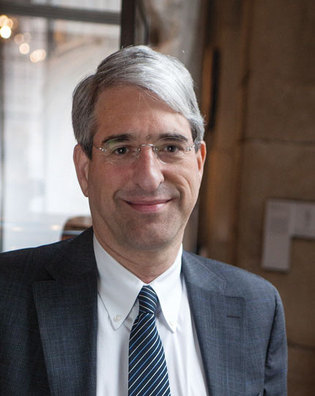 loading
loading
Q&A: Peter SaloveyWhat color is Yale’s faculty?“If you are looking far and wide, then you are going to end up appointing stronger faculty.” The Yale Alumni Magazine regularly holds a conversation with Yale president Peter Salovey ’86PhD to provide a forum in which alumni can learn his views. (Interviews are conducted both in person and by e-mail and condensed for print.)  Mark OstowIn this issue, Salovey talks about diversity in Yale’s professorial ranks. View full imageY: Yale just lost two female black faculty members to Columbia, and they both criticized Yale publicly when they announced their decisions to leave. Vanessa Agard-Jones [’00] called Yale’s retention rates for black faculty “strikingly poor.” Elizabeth Alexander [’84], the Obama inauguration poet, said Yale needs “extensive resource allocation” to retain faculty diversity. S: It is upsetting to me whenever we lose valued members of our faculty, and even more so when they are individuals who contribute to the diversity of the Yale community. These are situations that we work very hard to avoid. We are quite aggressive in trying to retain faculty who are being recruited away. But we have to realize that brilliant scholars whose work has considerable impact are going to be pursued—especially when they would add diversity to a university. We would like to be successful in retaining all such faculty, but it is unrealistic to think that our record will be 100 percent. And we must look not just at our losses but also at our gains. This year we recruited an eminent senior faculty member who brings diversity to our ranks—just one example among others—to my home department, psychology. She is a MacArthur Award winner and was previously at another excellent university. We are also focusing on recruiting new faculty who are at the beginning of their careers, and then nurturing and mentoring them so that they can be promoted internally to tenured positions. Y: Alexander said Columbia has committed $63 million in recent years for faculty diversity. S: Columbia’s approach is strong, and we have engaged in comparable efforts. At about the time this issue of the magazine appears, we will announce our next phase of recruitment and retention strategy as well as new approaches to building a diverse faculty from within the university. Why is this important? For two reasons. First, an excellent faculty is a diverse faculty. If you are looking far and wide, then you are going to end up appointing stronger faculty than if you simply use traditional networks or place generic ads in trade publications. Second, diversity on all dimensions—ethnicity, nationality, socioeconomic background, gender, political views—creates more challenging and provocative educational experiences for our students, both within and outside of the classroom. Y: Do you have specific targets? The Faculty of Arts and Sciences was 16.1 percent minority last year. S: We don’t have quotas. But I look at our student body, which is so wonderfully diverse. In Yale College, this year’s incoming class includes students from more than 60 countries and of all races and ethnicities. The number of freshmen who identify as Asian American, African American, Hispanic/Latino, or Native American Y: You have sought diversity among Yale’s deans. S: Deans are the academic leadership of the university, and it’s important that women and members of underrepresented minority groups be considered for these positions. First of all, you get a diversity of perspectives in your leadership team. But it is also a visible demonstration of our commitment to building a more diverse university. In the past year and a half, I’ve appointed deans of Yale College, the Graduate School, the Faculty of Arts and Sciences, the School of Nursing, and the School of Architecture. Those positions are now filled by four women and an African American man. I am very excited about these individuals because they were absolutely the most compelling candidates. I am also proud that we ran the searches in a way that ensured that the pools of candidates we considered were diverse and that this resulted in the appointment of these outstanding individuals.
The comment period has expired.
|
|